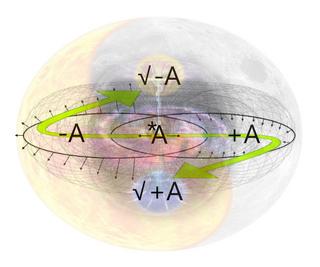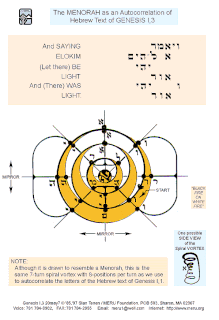Peter Holmes wrote: ↑Thu Jan 02, 2020 12:29 pm
Beautiful? Maybe. But also wrong. All talk of such things as relevance and essence is precisely that: talk. There is no such thing as an inherently relevant or essential description. So the claim that 'abstraction' is 'the amplification of the essential' is incoherent, because the essential could be anything at all.
All relative inability to penetrate the depth of the implications would render 'talk' of it precisely that: talk.
There is
certainly such thing as an inherently relevant or essential description. Take:
breathing.
Is breathing essential to life?
Yes/No.
Obviously: yes, otherwise one is
as good as dead.
Take the variable body A. Is A breathing, thus alive?
What is relevant here? What is essential here?
That A be granted the capacity to breath.
How can we capture breathing as an intrinsic property of A?
To breathe in (+) and to breath out (-).
√1 = +1, -1
√A = +A, -A
A = +A, thus not breathing.
Now in light of this, consider the Aristotelian Identity Law
A = A (reminding that A implies +A and
excludes -A (!) )
viz. contains an intrinsic assumption:
motionless
and/or suspended in only one modality: +A. Where is -A?
viz.
A = A is describing a
motionless object/subject,
which by construction excludes animated bodies.
A = A is thus conditional.
A ≠ A (excludes animated bodies)
√A = +A, -A
A = *A
____________________________
*variability allows motion (+)(-)
Now *A satisfies the observable universe: *A has the intrinsic capacity
for 'in/out' which satisfies all basic toroidal field modalities:

So there is no abstract thing, but there is something called 'abstraction' that is nonetheless coherent. Maybe here is the heart of the confusion: what exactly is 'abstraction' supposed to involve?
This is precisely why I indicated the quote was
beautiful,
it summarizes the fruit of any such inquiry. Perhaps it is only
something that resonates with people who use abstraction
thus can appreciate the truth value of the statement.
Thus leaving the quote unharmed, I render my own attempt, succeed or fail as I may.
Space and time are not "things". They are
in-and-of-themselves thus
ABSTRACT.
Thus, any/all considerations to/of "space" and/or "time"
including a "model" of the universe according to Einstein's GTOR
insofar as it both relies on, and/or discards Newtonian PM,
is
ABSTRACT, thus sustained by way of
ABSTRACTION.
These no-thing
ABSTRACTIONS are (like) the blank canvas of creation whose paint is the light (spectrum).
You are given a "space". You are given a "time". You live thus abstractly by way of LIGHT in-and-of SPACETIME.
Genesis 1:3...

...is the
equation of the light.
Perhaps we agree after all. My point is that we have to distinguish sharply and completely between features of reality and whatever is or can be said about them. - And that fantasies about abstract things, concepts, essences - and so on - all derive from mistaking what we say for the way things are: the myth of propositions and propositional knowledge.
What is the difference between KNOWLEDGE and BELIEF?
Whereas belief is imaginary, thus imaginary would be any tree derived by way of,
knowledge is by way of abstraction of
real living "tree": a real tree of the true way of living.
It is thus knowing all not to believe
(as
equivalent to truth of the way of the living)
involves metaphysical questions being addressed
(such as by those who say "life is a test...?")
yet they
know not from which tree they even eat
for BEING:
believers, in-and-of some
imaginary thing.
eg. take the inverse of any proposition, real or imagined,
against itself:
+A: Religion X is a religion of peace. (<-propositional)
-A: Religion X is a religion of perpetual conflict. (<-propositional
inverse)
________________________________________
which
appears more true?
(+A or -A)
See again the geometry which models this logic to adapt to the
universality of
motion.

